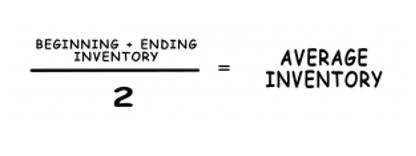
When you’re a Pro, you’re able to pick up tax filing, consultation, and bookkeeping jobs on our platform while maintaining your flexibility. Finding an accountant to manage your bookkeeping and file taxes is a big decision. Full charge bookkeepers must prioritize their workload, allocate sufficient time for each task, and be highly organized. Developing efficient systems and utilizing task management tools can greatly assist in maximizing productivity and meeting deadlines consistently. We take pride in its high-quality service, ensuring clients can focus on other important aspects of business. This dedication to quality and customer service sets Books Certified Bookkeeper and Balances apart in bookkeeping.
- So let’s see what the basic duties of a full charge bookkeeper are, so you can have a better idea if that is what your business needs are.
- Outsourcing provides access to bookkeepers who can offer a higher level of service, often at a fraction of the cost of a full-time employee.
- This dedication to quality and customer service sets Books and Balances apart in bookkeeping.
- This content is very general in nature and does not constitute legal, tax, accounting, financial or investment advice.
- Understanding the nuances that sets full charge apart from standard bookkeepers and accountants can be tricky.
Accounting for SaaS: Tools, Standards, Challenges, and Tips
- The best way to do this is to take continuing education courses and specialize in a certain area of accounting.
- A full charge bookkeeper is responsible for all aspects of a company’s financial record-keeping, including accounts payable, accounts receivable, payroll, and financial reporting.
- An in-house bookkeeper may not be involved in higher-degree financial evaluation or decision-making.
- In this case, the full charge bookkeeper position may be converted into an assistant controller position, with responsibility for some aspects of accounting operations.
- Therefore, a full-charge bookkeeper can handle many different things concerning finances.
This can save you a lot of money since you only pay for what you need. It also frees up your time and resources, letting you focus on other important business areas. Plus, you get access to the latest technology and knowledge on compliance and regulations.

Services

As mentioned earlier, the primary difference between a full charge and a regular bookkeeper is the fact that full charge bookkeepers manage all the accounting needs of the business. Because of this added responsibility, full charge bookkeepers usually report directly to the higher-ups. Sometimes, they also enlist the help of outside professionals like CPAs (certified public accountants) for certain tasks.
C. Process Payroll and Timesheets:
They may also be responsible for managing inventory full charge bookkeeper meaning and preparing tax returns. The major difference is that full service bookkeepers have more managerial and accounting related duties. Hopefully we’ve given you a better grasp of these differences and nuances between bookkeeping roles and even between bookkeepers vs accountants.

Q: How does a full charge bookkeeper differ from a regular bookkeeper?
You can look for freelancers and contractors on reputable freelance marketplaces, business social platforms, and agencies. Some of these include Upwork, LinkedIn, FreeUp, Bench, Xendoo, 1800-Accountant, and more. They must also obtain certification from a recognized authority like the National Association of Certified Public Bookkeepers (NACPB) or the American Institute of Professional net sales Bookkeepers (AIPB). These certificates or equivalents typically have an exam that one must pass.
- The pay range is generally from $15.04 to $30.27 per hour, depending on their experience and reliability.
- A full charge bookkeeper is a crucial position within any organization’s accounting department.
- Accountants usually have a more pronounced role in forming business strategies, supporting the organization’s growth and sustainability.
- Taxes are incredibly complex, so we may not have been able to answer your question in the article.
- They’ll be in charge of getting your finances organized, keeping track of sales, income and expenses, and executing payrolls.
- As mentioned earlier, the primary difference between a full charge and a regular bookkeeper is the fact that full charge bookkeepers manage all the accounting needs of the business.
- Most of the full-charge bookkeepers started as regular bookkeepers, gained experience, went through advanced accounting software training, and worked their way up the ladder.
A full charge bookkeeper handles a wide range of responsibilities beyond traditional bookkeeping. Central to their role is maintaining the general ledger, which involves recording all financial transactions accurately. This requires attention to detail and a solid grasp of accounting principles to ensure every entry is correct and current. A Full Charge Bookkeeper is a professional managing all the financial records like tax returns or financial statement preparation of small or mid-sized companies.
